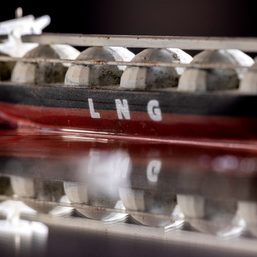SUMMARY
This is AI generated summarization, which may have errors. For context, always refer to the full article.

MANILA, Philippines – The Supreme Court has issued a landmark ruling which allows the Department of Energy (DOE) to take over the oil industry under emergency conditions.
In a 36-page decision penned by Associate Justice Marvic Leonen, the SC said that the Republic Act No. 8749 or the Downstream Oil Industry Deregulation Act provision authorizing the DOE to take over oil industry players given certain conditions, is valid.
The High Court said that in times of national emergency or when public interest so requires, the DOE may temporarily take over or direct the operations of any entity engaged in the oil industry.
Chief Justice Alexander Gesmundo and 12 associate justices concurred with the decision promulgated on March 4. Two justices did not take part.
What went before
The SC decision stemmed from a petition filed by Pilipinas Shell Petroleum Corporation before a regional trial court, questioning the validity of the provisions of RA 8749 and an executive order of then-president Gloria Macapagal Arroyo in 2009.
In 2009, Arroyo ordered that oil companies maintain prices of petroleum products, following the onslaught of Tropical Story Ondoy and Typhoon Pepeng, which affected millions of Filipinos.
Pilipinas Shell secured a favorable from the RTC ruling, which was upheld by Court of Appeals in 2013, prompting the Office of the Executive Secretary and the DOE to bring the case to the High Court.
In its ruling, the High Court said that it could not find “actual proof” from Pilipinas Shell that the exercise of the takeover provision caused harm or injury.
The SC, however, noted that the law provides limitations on the takeover of power. Specifically, the legislature must grant the President emergency powers first for a limited period.
The President could then delegate responsibilities to agencies, including the DOE.
“[I]f, in the exercise of its delegated authority, the energy secretary acts in contrast with the president’s intent or instructions, the act will be deemed ultra vires (beyond the powers) and an unconstitutional usurpation of executive power,” the SC said.
The DOE has yet to comment on the matter, but told reporters that their legal team is still reviewing the SC’s decision. – Rappler.com
Add a comment
How does this make you feel?











There are no comments yet. Add your comment to start the conversation.